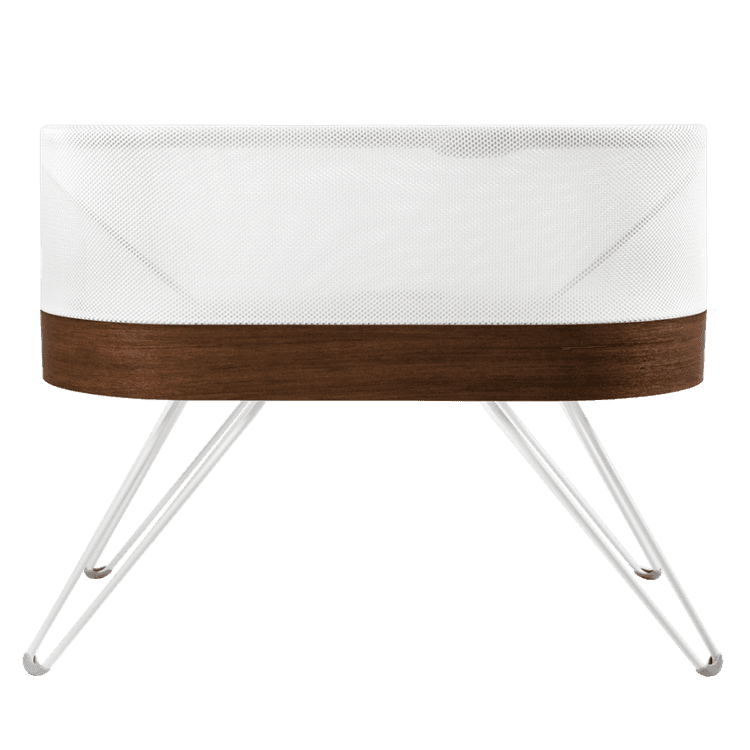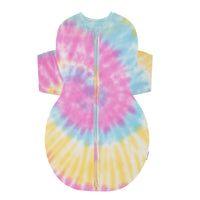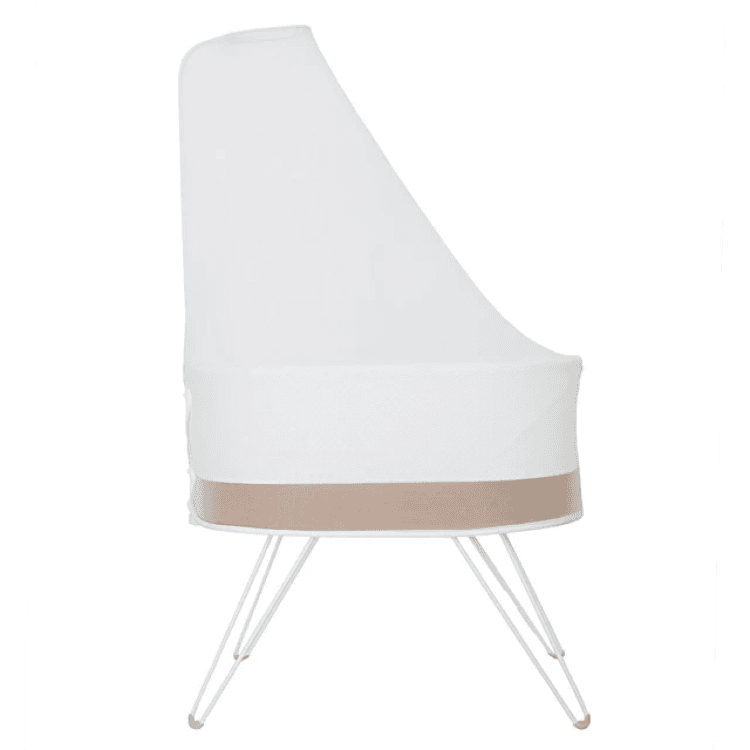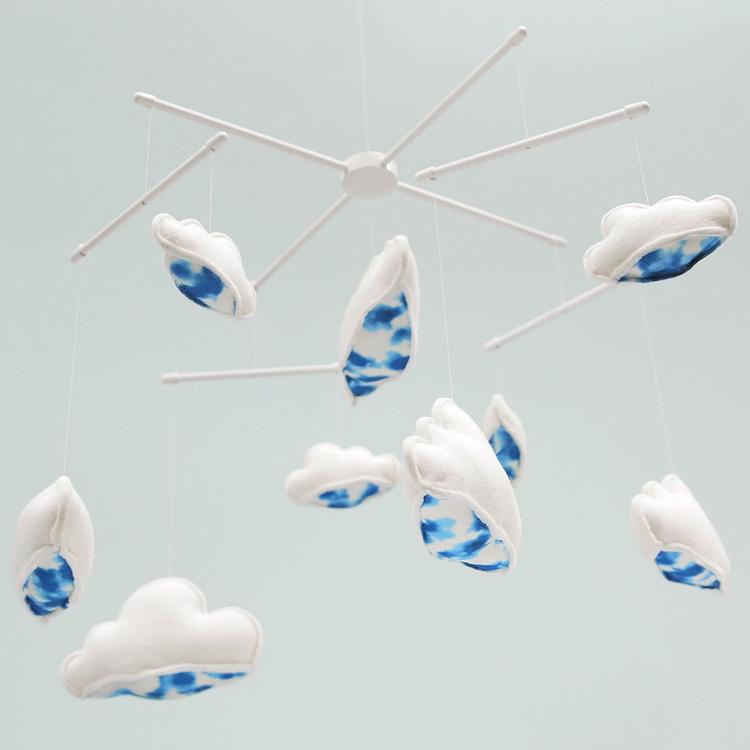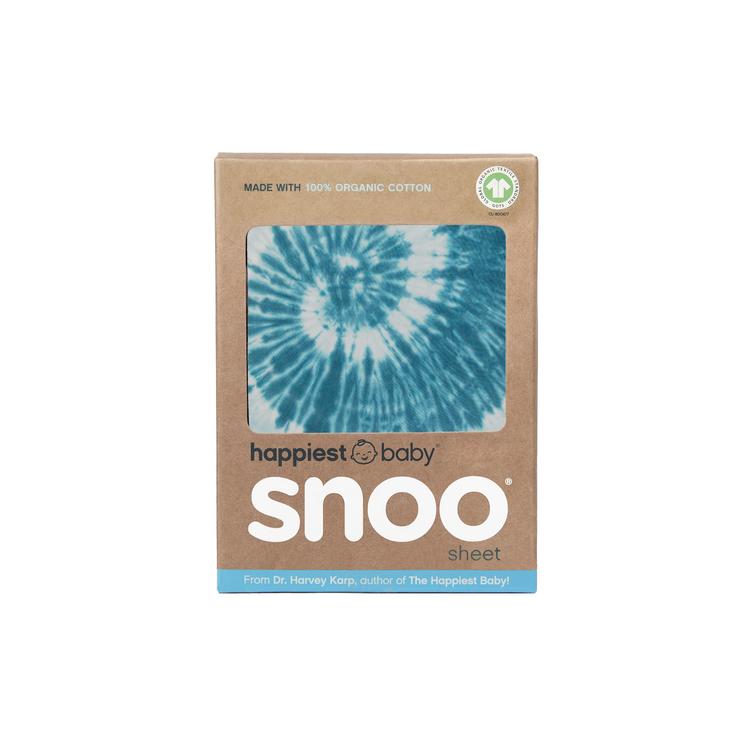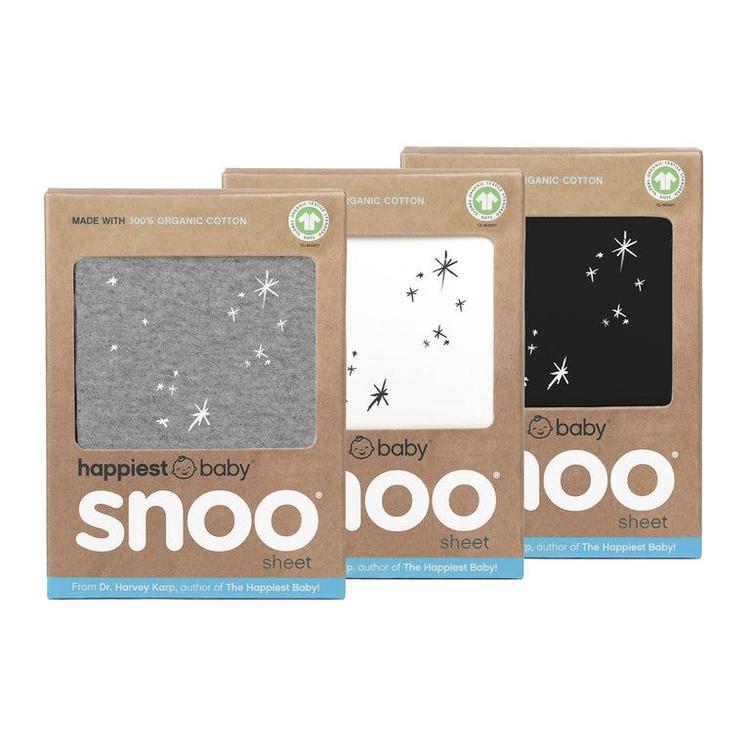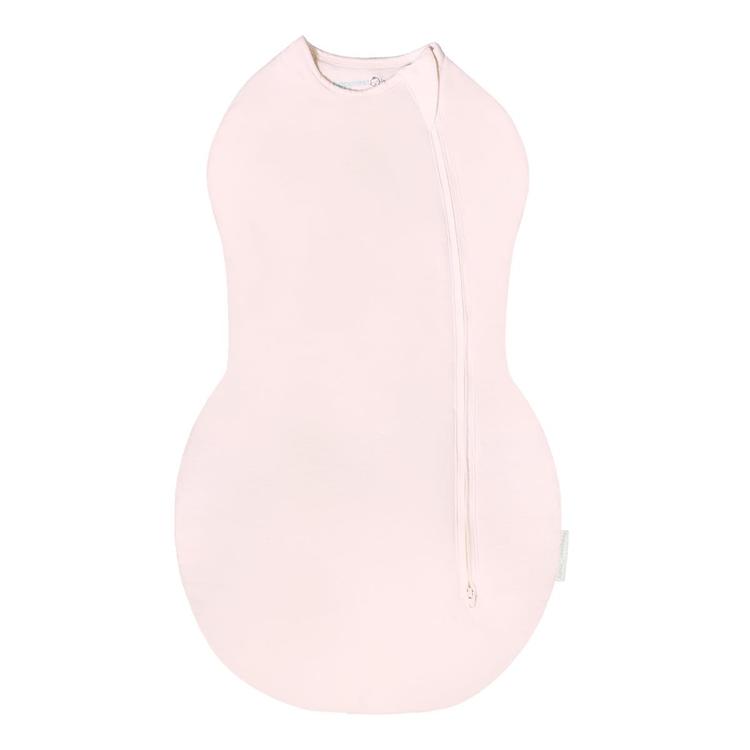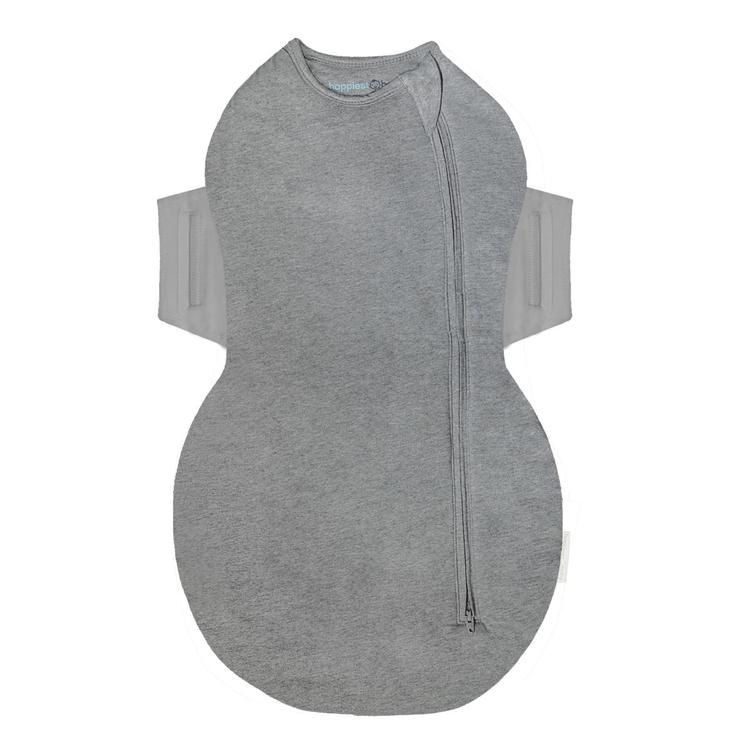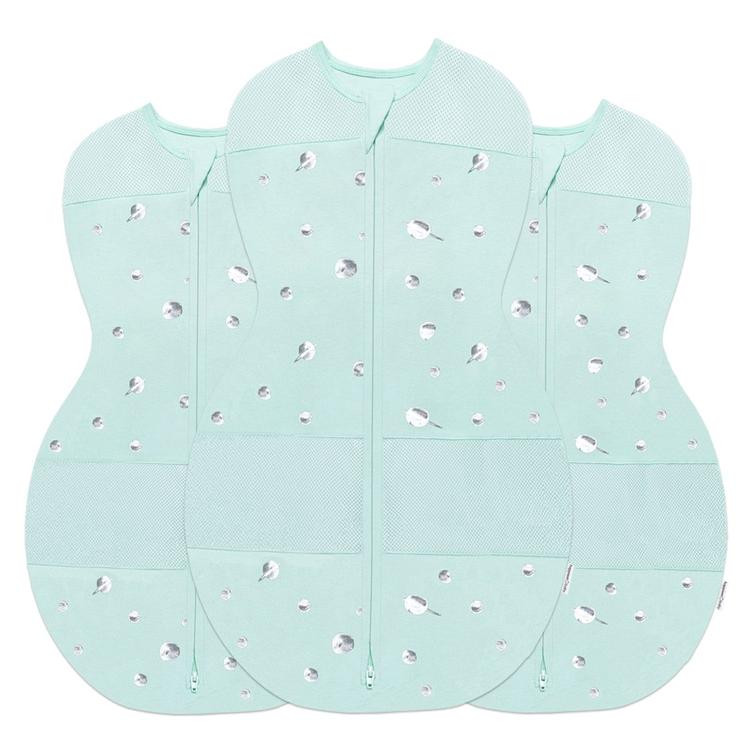BABY
Your Guide to Supplementing Breastmilk With Formula
Giving your little one baby formula in addition to breastfeeding is pretty common—and perfectly okay. Here is how to supplement successfully.

Written by
Gabrielle McPherson, MS, RDN, LDN

Exclusive breastfeeding may be the ultimate goal for some, but the reality is, for many parents, combo feeding with breastmilk and baby formula becomes necessary at some point. In fact, many breastfed babies receive supplemental formula before they are 6 months old, according to the National Health Service Survey. And there is nothing wrong with that! There is no rule that says you have to choose between breastfeeding and formula. It is not an all-or-nothing approach…and you can most certainly do both! Fed is best, after all. If you are considering combo feeding, read on to learn why others choose this route—and how to best approach this feeding strategy.
Reasons Breastfeeding Parents Supplement with Formula
There is not one overriding reason why families choose to supplement breastfeeding with formula. Instead, there are many. Here are some of the most common reasons parents add baby formula to the mix.
Your Paediatrician Recommended Supplementing with Formula
If your baby was born premature or is having difficulties growing and gaining weight, your paediatrician may recommend supplementing with infant formula for additional calories and nutrition. Your healthcare provider may also suggest supplementing with baby formula if your little one develops jaundice, which occurs when a chemical called bilirubin builds up in your baby’s blood. Some studies show that supplementing breast milk with formula can lower bilirubin levels—and help sidestep the need for further treatment.
You are Returning to Work or School
Pumping is a lot of work…and, truth is, there still is not a ton of support to continue pumping once a nursing mum heads back to work or school. In fact, employers are legally required to provide a space for mums who are breastfeeding to lie down and rest if they need to. If you can relate, consider speaking with a lactation consultant for advice on how to best make pumping work…and you may just find that supplementing with formula helps keep pumping and nursing going.
Your Milk Supply Is Low
Thinking you are not producing enough breastmilk is one of the biggest reasons parents stop nursing, notes a report in Maternal & Child Nutrition. But the reality is, physically not being able to produce enough breastmilk is only an issue for about 5% of breastfeeding mums. If you feel your milk supply is low, do not hesitate to get some guidance from a lactation consultant, your baby’s paediatrician, or a local breastfeeding support group.
Your Partner Wants To Be More Involved In Feedings
Breastfeeding is a beautiful way to bond with your baby—and it is recommended that new parents exclusively breastfeed for about the first six months. But usually only one parent can offer this service, perhaps leaving your partner with a little FOMO. The solution for many: Tag team Baby’s feedings. While you get some much needed rest, your partner feeds the baby pumped breastmilk or prepared formula.
You Prefer Supplementing With Formula
And, guess what? If breastfeeding and supplementing with formula works best for you, that is totally okay! When it comes to feeding your baby, the most important factors are 1) your little one gets the nutrition they need, and 2) you are feeding your baby in a way that works for you and your family. While everyone’s feeding situation is different, in the end, all parents simply want a thriving, healthy, and happy baby.
How to Supplement Breastfeeding with Baby Formula
If you have decided to go the formula route from the get-go, that is one thing. But planning to breastfeed and offer baby formula requires planning and troubleshooting to ensure your milk supply remains intact. Here is help.
Introduce formula at the right time.
Research shows that the more formula given to a baby in the hospital after birth, the less likely Mum will continue to breastfeed. You see, when a newborn gets filled up on formula, they are less inclined to wake and nurse well for their next feed…which can set you on the path to producing less milk and Baby preferring the ease of the bottle. (With breastfeeding, Baby needs to establish a deep latch, suckle quickly to get the milk flowing, then slow the suck to a rhythmic pattern to empty your breast. With bottles, there is a steady flow from the start, making eating a breeze.)
If you are planning on (even partially) breastfeeding, it is best to wait until your little one is about 3 to 4 weeks old before offering a bottle of formula or breastmilk. Alternatively, if you wait till, say 2, 3, or 4 months to introduce a bottle, your precious baby may say No Thanks. To sidestep that, try offering your baby one bottle a day—of breastmilk or formula—around 6 weeks.
Choose a safe infant formula.
Truth: All commercial formulas sold in the UK are perfectly safe for babies thanks to some very specific and stringent manufacturing regulations put forth by the EU Delegated Regulation. To choose the very best baby formula for your baby, make sure the container is sealed, unexpired—and is labeled iron-fortified. While most commercial infant formulas sold in the UK contain iron, it is not universal, so be sure to check. Iron-fortified infant formulas are the recommended choice, according to the NHS. Also, double check the label to ensure the baby formula in question is, in fact, for babies! (Toddler formulas can look very similar.) And feel free to ask your baby’s paediatrician or registered paediatric dietitian for advice on selecting the right formula for your baby.
Start small.
Formula feeding can be so very helpful…but it can also threaten your milk supply. To ensure your breasts continue to fill with milk, try introducing just 60 milliliters of formula after one breastfeeding session each day to start. (Again, try to wait until your baby is about 6 weeks old.) If after a week of one-bottle-a-day is working, you can try add a second two-ounce bottle to your day while you continue to breastfeed. And when starting out, always offer breastmilk before the bottle.
Gauge your baby’s mood.
The best time to introduce formula to your baby is when your sweet pea is content and calm—not super-hungry and flailing. When it is time to eat, nurse your little one enough to fill their tummy. Then, if Baby still shows some signs of hunger after that breastfeeding session, offer a small bottle with formula. If your babe is totally satisfied post-nursing, you might wait 30 minutes to an hour later to offer formula. The key: Do not wait until your baby is overly hungry to try baby formula!
Safely prep the bottle of formula.
Before preparing your baby’s formula, wash your hands and wash and sanitize the bottle and bottle accessories. If you are using a powder baby formula, make sure the water you use to mix in is safe. Unsure? Check your local health department to find out. And while parents often assume they need to use warm water to mix infant formula, the NHS attests that that is not true. Cool or warm, it is really up to you. That said, if your baby prefers warm milk, you can safely heat Baby’s full bottle by placing it into a warm water bath for several minutes. It is best to avoid the microwave here, since it can create hidden hot spots that can burn Baby’s mouth.
And if you are hoping to create some bottles that are a mix of breastmilk and formula, know that that is A-okay! Breastmilk and formula can be combined as long as the baby formula is safely mixed first. (Avoid adding formula powder to your breastmilk unless under the direction of your baby’s paediatrician.)
Seek help and support.
Feeding a baby is no easy feat! If you are thinking of supplementing with formula, it is good to get some extra help to ease your worries. Consider reaching out to the La Leche League, a local lactation consultant, and/or another group that can support parents who breastfeed and supplement.
Troubleshooting Formula Feeding Problems
Because baby formula tastes different from your breastmilk and the act of sucking from a bottle is not like suckling from a breast, some resistance or confusion can arise when introducing supplemental formula to your baby.
Formula Feeding Problem: My baby chokes on formula.
Since breastmilk flows slower than formula from a bottle, that faster flow can catch your baby off-guard—and may cause coughing and spitting up. To help, try switching the nipple on your bottle to one with a slower flow. At the same time, use what is called the 'paced bottle feeding method' to better mimic breastfeeding. To do this, hold your little one as upright as possible and keep the bottle parallel to the floor during the feeding. Doing it this way keeps your baby from guzzling formula too quickly. Depending on your baby, it may take 10 to 15 minutes to finish a bottle, which is similar to breastfeeding.
Formula Feeding Problem: My baby refuses formula bottles.
Babies may refuse bottles filled with formula because breastmilk is sweeter than formula…and thus, more taste-bud friendly. While you cannot do anything about that, you can enlist another person to offer early bottles, so your little one is less likely to expect that comforting sweet treat associated with you.
Formula Feeding Problem: Formula makes Baby gassy.
Because breastmilk is easy to digest, you may notice an increase in baby toots when supplementing with formula. Plus, babies can be sensitive to lactose or milk proteins in formula, which may cause gassiness. While some toots can be totally normal, if your baby seems very fussy and very gassy, speak with your paediatrician about the possibility of switching to a different baby formula. There are specially-designed sensitive infant formulas that may help settle your small one’s bloated belly and reduce gas.
Formula Feeding Problem: Baby is now refusing the breast.
Some babies prefer the faster flow of milk from a bottle, causing them to shun the harder work of drinking from the breast. To help, try the nurse-first method where you breastfeed before offering formula. Also, you might try pumping your breastmilk and offering it in a bottle with a quicker-flow nipple.
Formula Feeding Problem: Infant formula is expensive.
Baby formula is pricey! In fact, baby formula can cost anywhere between £60,69 and £102,55 per week depending on which brand was chosen. Here are a few things you can do to work around the hefty expense of purchasing baby formula.
- Stick to powder formula. It is always going to be cheaper than liquid and concentrate versions.
- Accumulate samples. Baby formula reps often drop samples for patients at paediatrician offices, so never hesitate to ask for some.
- Get on lists! Sign up for the email list of commercial formula companies for samples, coupons, and special deals.
- Buy store brand. Since all commercial infant formula is safe, consider purchasing store brand formula...that contains iron, of course.
Disclaimer: The information on our site is NOT medical advice for any specific person or condition. It is only meant as general information. If you have any medical questions and concerns about your child or yourself, please contact your health provider. Breastmilk is the best source of nutrition for babies. It is important that, in preparation for and during breastfeeding, mothers eat a healthy, balanced diet. Combined breast- and bottle-feeding in the first weeks of life may reduce the supply of a mother's breastmilk and reversing the decision not to breastfeed is difficult. If you do decide to use infant formula, you should follow instructions carefully.
SHARE THIS ARTICLE
PARENT PICKS
Bestsellers
More on Baby
About Gabrielle McPherson, MS, RDN, LDN
Gabrielle McPherson, MS, RDN, LDN is registered dietitian in Missouri who specializes in community and pediatric nutrition. Gaby is passionate about encouraging families to eat well in simple, practical ways that are realistic...and delicious! When not working, Gaby loves cooking, baking, and making messes and memories with her sous-chef/preschooler Charlotte.






